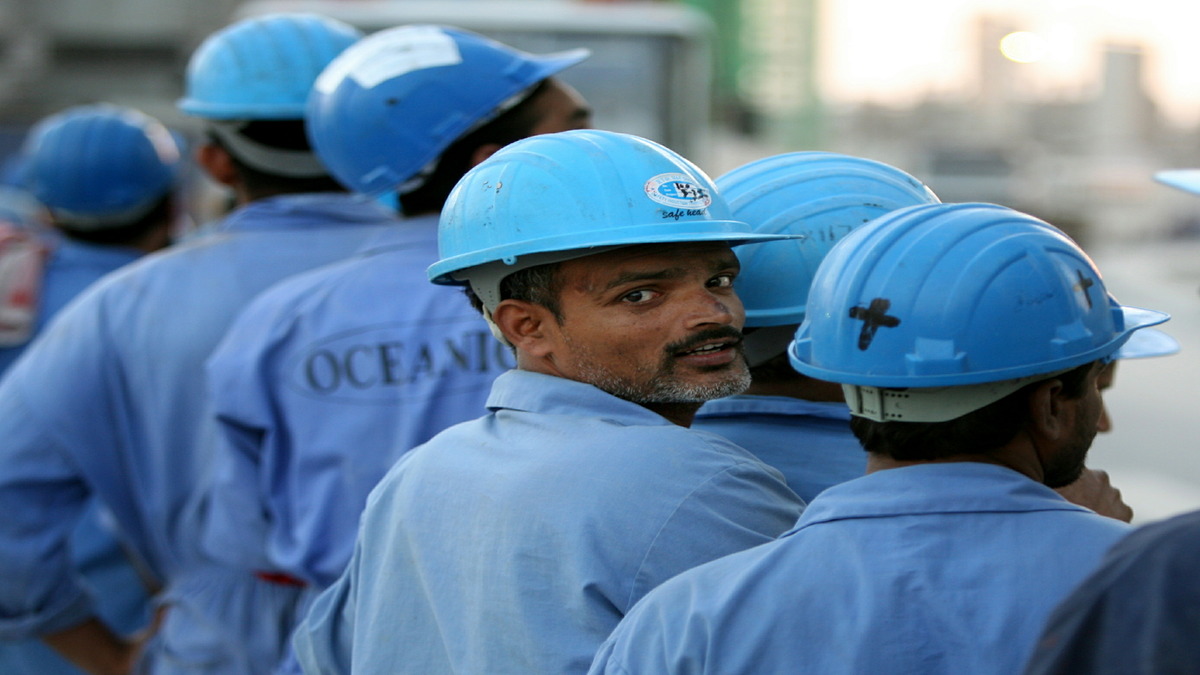A new life insurance plan for blue-collar Indian workers has come into effect in the United Arab Emirates (UAE) from 1 March. The Indian Consulate in Dubai announced the Life Protection Plan (LPP) which is aimed at providing financial support to the kin of deceased workers.
The scheme will benefit lakhs of Indian workers employed in the UAE. Here’s how.
What does LPP entail?
The Life Protection Plan can be availed at annual premiums ranging from Dh37 (approximately Rs 834) to Dh72 (about Rs 1,623) for people aged 18 to 70 years, as per a Khaleej Times report.
If a worker dies due to an accident or natural causes, beneficiaries will get compensation of up to Dh75,000 (approx Rs 16,90,922), depending on the selected premium.
The initiative also offers a Dh12,000 (about Rs 2,70,547) coverage for the repatriation of the insured employee’s body, the report added.
The insurance package also covers permanent complete or partial disability due to accident.
Annual premium and benefits
For Dh72 premium every year, the compensation is Dh75,000
For Dh50 (approximately Rs 1,127) per year, it is Dh50,000
For Dh37 per year, it is Dh35,000
Why was it needed?
The UAE houses 3.5 million (35 lakh) Indians, out of which 2.27 million (22.7 lakh) are blue-collar workers.
Impact Shorts
More ShortsSeveral companies in the oil-rich UAE provide health insurance and compensation for work-related injuries and deaths, however, there is no compulsory coverage in case of employees’ natural death.
To tackle this, the Indian Consulate in Dubai facilitated a joint meeting between major companies in the UAE recruiting Indian blue-collar workers and the insurance service providers — Gargash Insurance Services LLC and Orient Insurance PJSC — to come up with an insurance plan that could cover natural and accidental deaths of the workers, according to a press release.
It further said that it was “noticed that most companies are insuring their employees under Health Insurance and Workers’ Compensation [work-related injuries & deaths].”
“However, there is no mandatory insurance coverage for the natural death of employees, and hence the legal heirs/dependents of the deceased do not receive any compensation in cases of natural death,” Gulf News reported citing the release.
Speaking about the insurance package, Consul General of India in Dubai Satish Sivan said, “The welfare of the Indian community remains our utmost priority”.
“Keeping in view a large number of natural death cases of workers in a year and in order to provide some financial benefits to the family of the deceased, the Consulate-General of India, Dubai, encourages all companies to consider a subscription to the Life Protection Plan”, Gulf News quoted him as saying.
Deaths of Indian workers
Last year, 1,513 Indians died in Dubai, of which 1,000 were workers. In 2022, 1,100 workers died in Dubai out of a total of 1,750 deaths, the Indian mission noted. “It has been observed that in more than 90 per cent of the cases, the cause of death is natural,” the press release said.
An Indian government data presented in Parliament in 2022 revealed that the most number of deaths of Indian workers were reported in member countries of the Gulf Cooperation Council (GCC) – Bahrain, Kuwait, Oman, Qatar, the UAE and Saudi Arabia – between 2019 to 2021, including the pandemic years, The Hindu reported.
In 2020, as many as 2,454 Indian labourers died in the UAE, a rise from 1,751 casualties a year back. This figure increased to 2,714 in 2021.
As many as 30 million migrants from Asia and Africa are working in these six Gulf countries, of which 80 per cent are employed in low-paid sectors such as construction, hospitality and domestic work.
A concerning report by a group of human rights organisations released in 2022 found that 10,000 migrant workers from South and Southeast Asia die every year in the Gulf countries.
Over half of the deaths are unexplained and are mostly attributed to “natural causes” or “cardiac arrest”, The Guardian piece mentioned citing the report. It also stated that low-paid migrant workers in the Gulf are exposed to several health risks such as heat and humidity, air pollution, psychosocial stress, hypertension, overwork and abusive working conditions, poor occupational health and safety practices.
“Long hours of manual labour in searing temperatures can result in heat stress, which can lead to organ damage”, the report stated, as per The Guardian.
Migrants are also sometimes duped by agents with the allure of making good money in Dubai in just a few years. While workers often take loans to pay agents, they hardly make the promised sums from their income as cleaners or labourers on construction sites, according to a 2017 Reuters report.
The Indian government and non-governmental groups have received a series of complaints, including non-payment of wages and abuse, from migrant workers over the years, the report noted at the time.
Ramanna Chitla, who had worked in Dubai for 16 years, told Reuters in 2017 that workers were “underpaid and poorly treated” there.
“They don’t visit doctors when they are unwell to save money,” Chitla said, adding that deaths reported as ill health were many times due to an “exploitative” work environment.
With inputs from agencies
)